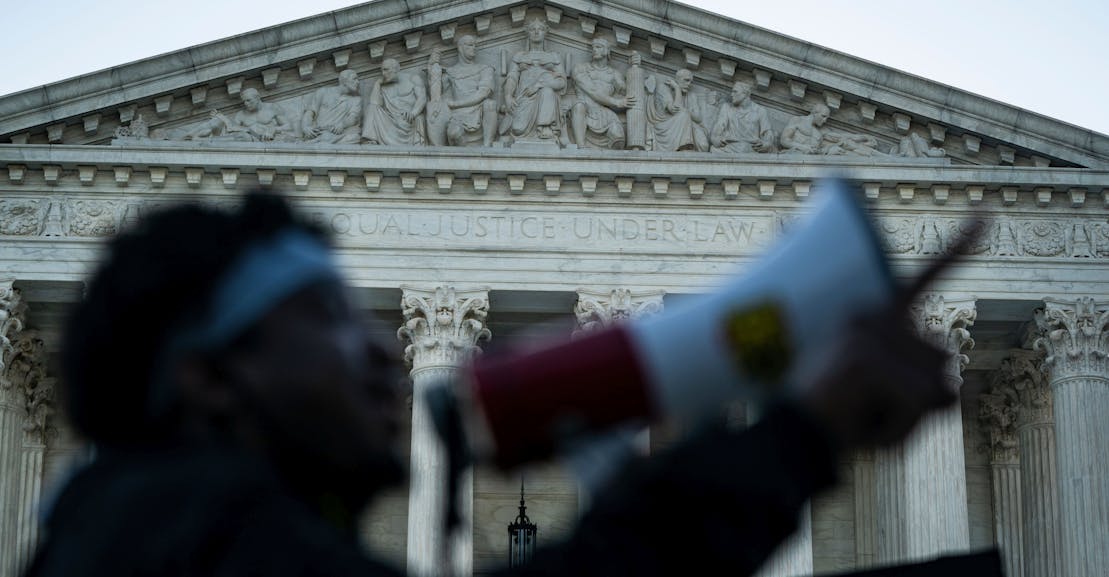There are two great losses in Ruth Bader Ginsburg’s death. First and foremost among them is the person herself. The 87-year-old justice was a tireless and formidable figure in American law—an impressive jurist during her nearly three decades on the Supreme Court and a groundbreaking advocate for women’s rights throughout her entire legal career. She is mourned not just by those who respected and admired her but also by those whose lives were made possible by her victories and those who found her a source of inspiration to advance the cause of justice even further.
The other loss is for the American republic. Her death marks the third time in four years that the Supreme Court’s ideological balance is up for grabs, and likely the third time that it will move the court even further to the right. Conservatives are now emboldened to pursue more aggressive victories at the high court; liberals, stung by yet another defeat, are now considering more sweeping reforms of the court itself to reverse the tide. No matter who President Donald Trump chooses to replace Ginsburg, their confirmation battle will likely be an ugly, toxic exercise in political theater.
There remains only one solution to the warping disruptions of America’s judicial wars: End them altogether. End the confirmation process that displays the worst qualities of lawmakers on both sides and undermines two branches of government at the same time. End the partisan timing of justices’ retirements and the morbid instability that ensues when they die in office. End the sprawling, donor-fueled machinery that pre-screens judicial nominees most favorable to its agenda and helps install them. There is a better way—one that preserves the independence of the courts while ensuring regular turnover and which allows the people’s branches to shape their future without undermining them.
How did it come to this? Liberals pin most of the blame on Mitch McConnell, one of the most nihilistic figures in American political life. But for all of his deleterious effects on American democracy, neither McConnell nor any other senators “stole” a Supreme Court seat in 2016. As I noted last year, presidents have every right to nominate a Supreme Court justice when a vacancy arises, and the Senate has every right to consider (or not consider) that nominee. McConnell’s justification was shamelessly disingenuous: Republicans couldn’t say outright that they want to impose a certain ideological vision upon the courts, so they conjured up the “Biden rule” (or “McConnell rule” or whatever you want to call it) as a convenient excuse not to consider well-qualified nominees like Merrick Garland. Republicans’ justifications for their reversal on these “rules” this year may be risible, but the underlying realpolitik is sound.
That’s why it’s also unrealistic for liberals to expect that conservative Republican senators, who owe their seats to conservative voters and conservative donors, will turn down the opportunity to place conservative justices on the Supreme Court. If Democrats controlled the Senate right now, they would not hesitate to block whomever Trump nominates to replace Ginsburg, and everyone to the left of Joe Manchin would not hesitate to support it. If Democratic voters had turned out in sufficient numbers in key states in 2016 to help ensure Hillary Clinton’s election, this entire debate would be very different. McConnell threw down a gauntlet four years ago that Democrats did not pick up, and they will likely regret it for decades to come.
